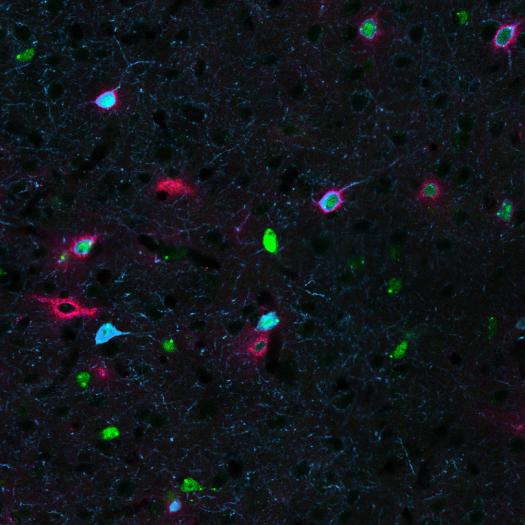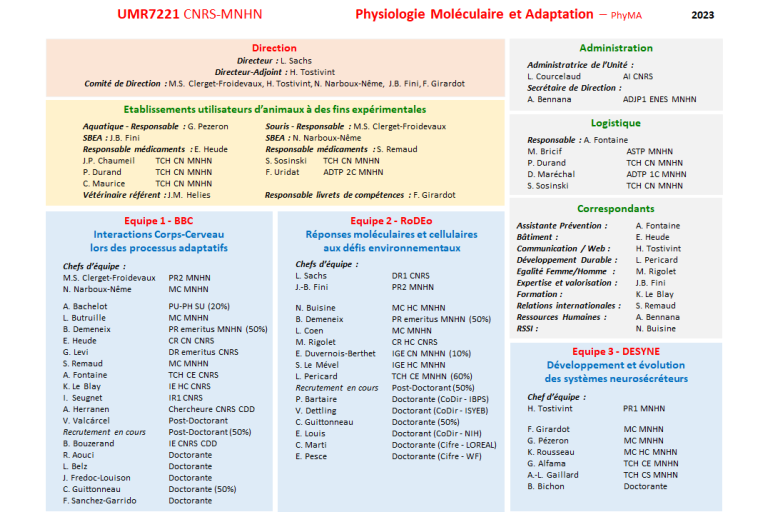General presentation

Coupe de cortex cérébral de souris. Révélation immunohistochimique de Parvalbumine (bleu), Dlx5-LacZ(vert) et WFA, marqueur de la matrice périneuronale (rouge)

Coupe de cortex cérébral de souris. Révélation immunohistochimique de Parvalbumine (bleu), Dlx5-LacZ(vert) et WFA, marqueur de la matrice périneuronale (rouge)
PhyMA is a joint research unit CNRS-MNHN (UMR7221). Our objectives are to elucidate the physiological processes controlling development and tissue homeostasis in normal and/or modified conditions. These processes contributing to phenotypic plasticity and evolution of biodiversity are studied in the context of interactions of the organisms with their environment.
The whole unit aims to decipher endocrine signaling, gene functions, gene regulatory networks and molecular mechanism of gene regulation with the final goal of highlighting processes contributing to the generation of biodiversity, its plasticity and evolution. By bringing our molecular physiology expertise to the field of Ecology-Evolution-Development, we can contribute to generating knowledge of biological phenomena that will be useful at many levels. Acceleration of anthropogenic disruption of the biosphere in recent decades has had major detrimental effects on biodiversity and human health, each with enormous ensuing socio-economic consequences.
We will study how disruption of biological processes (whether through genomic variations or environmental change) affects physiological processes and how organisms adapt to them.
Our laboratory brings together a number of original skills to assess these physiological impacts on wildlife and human health.
We will continue to provide legislators with novel data that can be used to prevent damage to the environment and the health.

Objtectifs Phyma
